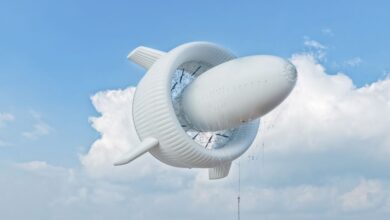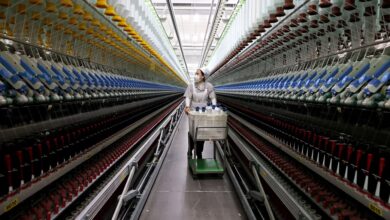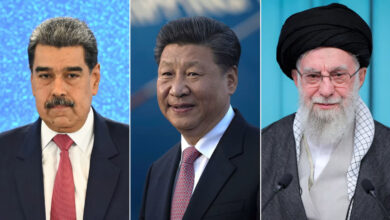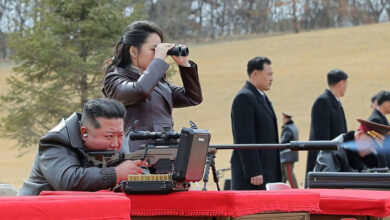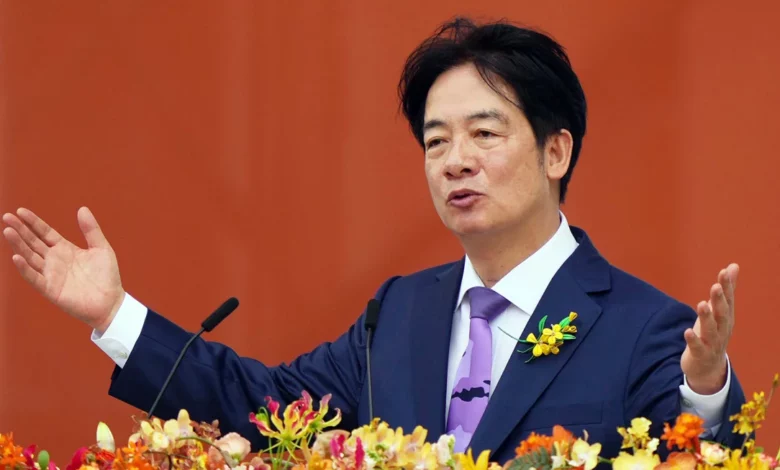
China’s ruling Communist Party says Taiwan is part of its territory, despite never having controlled it, and has vowed to take the island, by force if necessary.
The exercises, which started early on Thursday and will encircle Taiwan, pose the first real test for newly elected Lai Ching-te as he attempts to manage relations with the island’s powerful authoritarian neighbor.
China’s People’s Liberation Army (PLA) said it launched joint military drills involving the army, navy, air force and rocket force in areas around Taiwan at 7.45 a.m. on Thursday.
The drills are being conducted in the Taiwan Strait – a narrow body of water separating the island from mainland China – as well as north, south and east of Taiwan. They are also taking place in areas around Taiwan’s outlying islands of Kinmen, Matsu, Wuqiu and Dongyin, located just off China’s southeastern coast, the PLA’s Eastern Theater Command said in a statement.
PLA Naval Colonel Li Xi, spokesperson for the command, called the exercises “a strong punishment for the separatist acts of Taiwan independence forces and a serious warning against interference and provocation by external forces.”
Taiwan’s Lai is detested by Beijing as a “dangerous separatist” for championing the island’s sovereignty and distinct identity. He succeeded two-term president Tsai Ing-wen to start an unprecedented third consecutive term in power for the ruling Democratic Progressive Party.
Beijing has denounced Lai’s inauguration speech, during which he called on China to cease its intimidation of Taiwan.
Taiwan’s Defense Ministry has condemned China’s drills as “irrational provocations and actions that undermine regional peace and stability.”
In a statement Thursday, the ministry said it had dispatched sea, air and ground forces in response to the drills.
“We stand by with firm will and restraint. We seek no conflicts, but we will not shy away from one. We have the confidence to safeguard our national security,” it said.
Taiwan’s presidential spokeswoman Karen Kuo said in a statement: “It is regrettable to see China threatening Taiwan’s democracy and freedom and regional peace and stability with unilateral military provocations.”
“In the face of external challenges and threats, we will continue to defend democracy and have the confidence and ability to protect national security,” Kuo added.
Rising tensions
Under leader Xi Jinping, China has grown more assertive and ramped up diplomatic, economic and military pressure on Taiwan as the island democracy tightens informal ties with the United States.
In August 2022, China staged massive war games around Taiwan to show its displeasure with then US House Speaker Nancy Pelosi’s visit to Taipei. Beijing fired missiles into waters surrounding the island and simulated a blockade with fighter jets and warships, in its largest show of force in years.
Chinese warplanes now regularly fly into Taiwan’s air defense identification zone (ADIZ) and across the Median Line in the Taiwan Strait – an informal demarcation point that Beijing does not recognize but until recent years had largely respected.
Beijing has also exerted pressure on Lai in the lead-up to his inauguration. On May 15, days before Lai took office, Taipei said it detected 45 Chinese military aircraft around Taiwan, the highest single-day number this year.
Evan A. Feigenbaum, vice president for studies at the Carnegie Endowment for International Peace, calls China’s latest drills “an intimidation tactic, part of a pattern, not a sign of imminent war.”
“Beijing has a robust coercion kitbag from which it will mix and match, ratchet up and back and up again to signal its range of options to coerce and inflict pain,” he wrote on social platform X.
Some defense experts noted that the name of China’s latest military exercises “Joint Sword-2024A” suggests another round of drills could follow later this year.
Drew Thompson, a senior research fellow at the Lee Kuan Yew School of Public Policy at the National University of Singapore, noted the drills were part of a pattern.
“It is not a surprise, nor is it a tactical response to President Lai’s speech. These exercises are part of the PLA’s long-term, strategic preparations to fight and win a war over Taiwan,” he told CNN.
CNN’s Martha Zhou in Beijing and Eric Cheung in Taipei contributed reporting.

